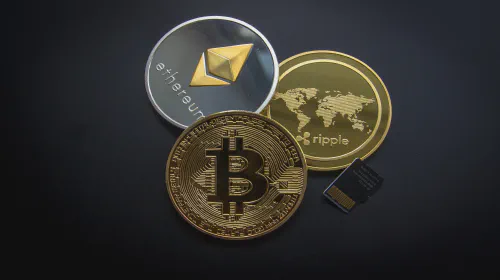Quantum Computing vs Cloud Computing: A Comprehensive Comparison
Salomon Kisters
Jul 12, 2023This post may contain affiliate links. If you use these links to buy something we may earn a commission. Thanks!
At first glance, quantum computing and cloud computing may seem unrelated.
After all, one is a cutting-edge technology that harnesses the power of quantum mechanics, while the other is a well-established approach to delivering computational resources over the internet. However, as technology continues to evolve, it is worth exploring how these two fields compare and potentially intersect.
In this blog post, we will delve into the world of quantum computing and cloud computing, examining their fundamental differences, their practical applications, and ultimately, how they shape the future of computing.
Understanding Quantum Computing
Quantum computing harnesses the principles of quantum mechanics to perform computations that are beyond the capabilities of classical computers.
Unlike traditional bits that are either 0 or 1, quantum computers use qubits that can exist in multiple states simultaneously through a phenomenon known as superposition. This inherent parallelism and the ability to entangle qubits provide quantum computers with the potential to solve complex problems more efficiently.
Exploring Cloud Computing
Cloud computing, on the other hand, is a model that provides users with on-demand access to a network of remote servers to store, process, and manage data.
Instead of relying solely on local computing resources, individuals and organizations can leverage the power of the cloud to access scalable and cost-effective solutions. Cloud computing offers a range of services, including infrastructure as a service (IaaS), platform as a service (PaaS), and software as a service (SaaS), catering to various computing needs.
Comparing Speed and Power
One of the key differentiators between quantum computing and cloud computing is their processing speed and computational power. Quantum computers have the potential to perform calculations exponentially faster than classical computers for certain tasks.
They excel in solving problems that involve complex simulations, optimization, cryptography, and machine learning. Cloud computing, on the other hand, may not match the raw speed of quantum computers but offers immense scalability and the ability to process vast amounts of data in parallel.
It caters to a wide range of applications, including web hosting, data storage, and real-time analytics.
Where Quantum Computing Shines
While cloud computing continues to serve a wide range of industries and applications, quantum computing is still in its early stages of development. However, there are specific areas where quantum computers hold immense promise.
For instance, the ability to factor large numbers quickly makes quantum computers a potential game-changer for cryptographic systems. Quantum simulations have the potential to revolutionize material design, drug discovery, and optimization problems in various industries.
Quantum machine learning algorithms promise enhanced data analysis capabilities and pattern recognition. As quantum technologies mature, these applications are expected to have a significant impact.
Cloud Computing in Action
Cloud computing, on the other hand, has already transformed the way businesses operate. Whether it is leveraging cloud infrastructure for scalable web applications, utilizing cloud-based analytics platforms for business intelligence, or adopting cloud storage services for seamless data access, cloud computing has become a cornerstone for many organizations.
Its benefits include reduced IT costs, increased flexibility, improved collaboration, and enhanced data security. Cloud computing empowers businesses of all sizes to focus on their core competencies without worrying about infrastructure management, making it an attractive choice for a wide range of use cases.
Quantum Computing Challenges
While quantum computers offer immense potential, there are fundamental challenges that must be overcome before they become practical for widespread adoption.
First and foremost, the stability of qubits and reducing the error rates in quantum computing systems are critical. Ensuring that quantum computers can perform calculations reliably and efficiently remains a significant hurdle.
Additionally, quantum computers require an environment with extremely low temperatures and isolation from external interference. Achieving these conditions and scaling up quantum systems pose significant technical challenges.
Moreover, quantum algorithms need to be developed and optimized to harness the true power of quantum computing.
Cloud Computing Limitations
Cloud computing, while widely adopted, also comes with its own set of limitations. As businesses increasingly rely on the cloud, concerns around data privacy and security have grown.
Storing sensitive data on third-party servers raises questions about data breaches and unauthorized access. Additionally, network connectivity issues or service outages can disrupt operations in cloud-based environments.
Organizations must carefully consider the trade-offs and understand the implications before embracing cloud computing solutions.
Quantum Computing and the Cloud
Looking ahead, it is not a matter of quantum computing versus cloud computing but rather how these two technologies will converge and complement each other.
Quantum computers are likely to become part of the cloud infrastructure, offering specialized services for specific tasks. For example, cloud providers may offer quantum computing as a service (QCaaS), enabling users to access the power of quantum computers through the cloud.
This convergence can unlock new possibilities by combining the scalability and reliability of cloud computing with the computational advantages of quantum computers.
Conclusion
Quantum computing and cloud computing represent two distinct paradigms in the world of technology. Quantum computers excel in solving complex problems at unprecedented speeds, while cloud computing offers scalable solutions for a wide range of applications.
While quantum computing is still in its infancy, cloud computing has already transformed the way we store, process, and access data. As these fields continue to evolve, we can expect to see exciting developments and potential intersections.
The future of computing lies in harnessing the power of both quantum and cloud technologies, driving innovation and transforming industries. So, whether you are eager to explore the potential of quantum computing or make the most of the cloud, understanding these technologies will be crucial in navigating the path forwar
Stay informed with the latest insights in Crypto, Blockchain, and Cyber-Security! Subscribe to our newsletter now to receive exclusive updates, expert analyses, and current developments directly to your inbox. Don't miss the opportunity to expand your knowledge and stay up-to-date.
Love what you're reading? Subscribe for top stories in Crypto, Blockchain, and Cyber-Security. Stay informed with exclusive updates.
Please note that the Content may have been generated with the Help of AI. The editorial content of OriginStamp AG does not constitute a recommendation for investment or purchase advice. In principle, an investment can also lead to a total loss. Therefore, please seek advice before making an investment decision.

How Blockchain Technology Benefits Everyday Business Owners
Blockchain technology offers numerous benefits to everyday business owners, including establishing trust, enabling value transfer, establishing contracts, providing timestamps, implementing smart contracts, facilitating audits, and offering custom solutions.

How Does Edge Computing Blockchain Revolutionize Data Management?
Discover how edge computing blockchain transforms data management, revolutionizing the way businesses operate. Explore its impact today!

DeFi Tokens vs. Coins - What is the Difference?
DeFi is everywhere. But what are DeFi tokens, and how are they different from coins?
Protect your documents
Your gateway to unforgeable data. Imprint the authenticity of your information with our blockchain timestamp